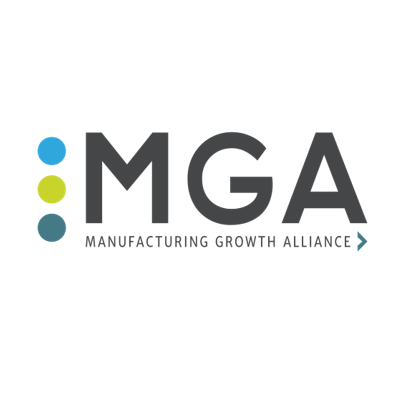Small manufacturers in southeast Michigan tackling the COVID 19 pandemic and located in underserved or underutilized areas will get a major boost thanks to the work of the Manufacturing Growth Alliance (MGA) and a $20,000 grant from the DTE Energy Foundation.
The DTE Energy Foundation awarded the $20,000 grant to MGA to help second-stage companies in HUB or Opportunity Zones in Wayne, Oakland and Monroe counties not only survive the pandemic, but plan for future success. The grant takes a three-pronged approach to help companies recover from the pandemic with specific services, starting with a peer-to-peer discussions that will inform MGA on how to best assist each manufacturer.
MGA is part of Kinexus Group, a statewide economic, workforce and innovation nonprofit that works with hundreds of Michigan employers to build strong and lead smart.
“Second-stage companies are ones that are past the startup phase and poised for growth but may need that little bit of extra expertise to grow,” stated MGA Board Chairman, Steve Jackson, of Eagle Technologies in Bridgman, MI. “We want to thank the DTE Energy Foundation for working with us.”
“At the DTE Foundation, we recognize small businesses – particularly small manufacturing businesses – are the collective backbone of Michigan’s economy,” said Lynette Dowler, president, DTE Foundation. “Through our $20,000 grant and our ongoing partnership with the Manufacturing Growth Alliance, we’ll continue to position these companies, which are essential sources of good-paying jobs for hard-working people in the communities where we live and serve, to succeed and create a healthier, more vital Michigan.”
“MGA is committed to supporting small manufacturers in all of Michigan’s 83 counties. There are many communities across that state that have underutilized business zones or lack business growth,” said MGA Executive Director, Jennifer Deamud. “Through this grant, MGA will focus efforts to provide needed resources to small manufacturers in Opportunity Zones and HUB Zones in the three-county area.”
Michigan has 752 HUB Zones, which are historically underutilized business areas, and 288 Opportunity Zones, which are in low-income communities and sometimes lack capital and other resources needed to position businesses for short- and long-term success. About 52 percent of HUB Zones reside in Wayne, Oakland, or Macomb counties, with the three counties representing about 44% of Opportunity Zones.
Small manufacturers can sign up or find out more about the “Strengthening Small Manufacturers” program at MGAlliance.org/special-initiatives.
Small manufacturers in Michigan number more than 11,400 and generate annual income of more than $107 billion; companies with less than 100 employees represent 88% of Michigan manufacturers.
